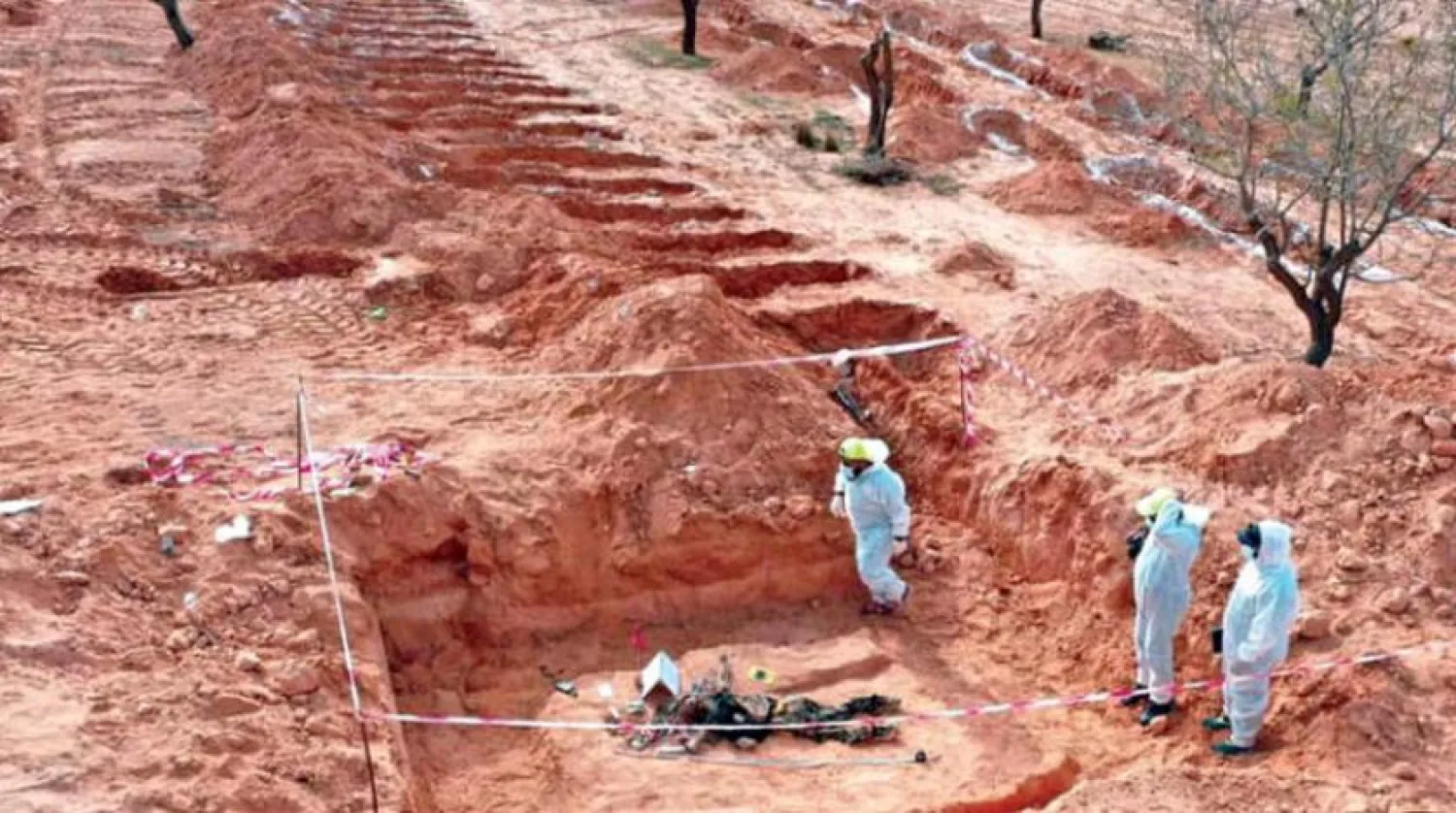Libya's General Authority for the Search and Identification of Missing Persons announced the discovery of a new mass grave in the southwestern city of Tarhuna.
The Authority recovered an unidentified body from one of the graves found in the agricultural project in Tarhuna.
Political and human rights activists called for an immediate investigation into the discovery, demanding holding those responsible accountable.
The Authority added that it would continue to examine all the reports it received about the missing persons during the past months, pointing out that it had previously taken 1,349 DNA samples from their families.
Tarhuna MP Abu Bakr Said said that in light of this tragic situation and the daily discovery of mass graves, "the Presidential Council and the Government should declare a state of emergency in Tarhuna."
He urged authorities to apprehend the "perpetrators of these heinous crimes."
The head of the Authority, Kamal al-Siwi, accompanied by some officials from the body, visited the city of Zintan last week to discuss the issue of the missing persons, clarify the mechanism of the commission's work, and facilitate the procedures for the families.
Libyan human rights groups have called on the UN to urge all Libyan parties to expedite the investigation into the discovery of mass graves in Tarhuna.
The United Nations Mission to Libya (UNSMIL) urged the "rapid and transparent" investigation into the extrajudicial killings.









